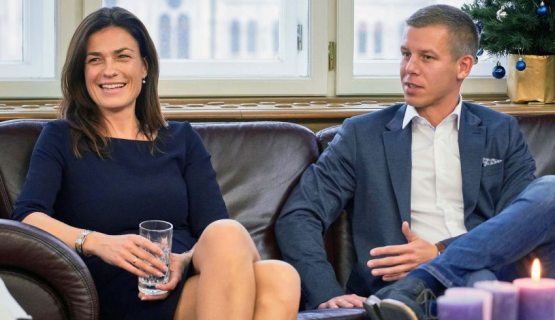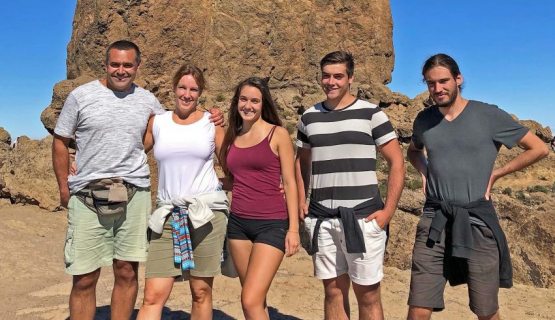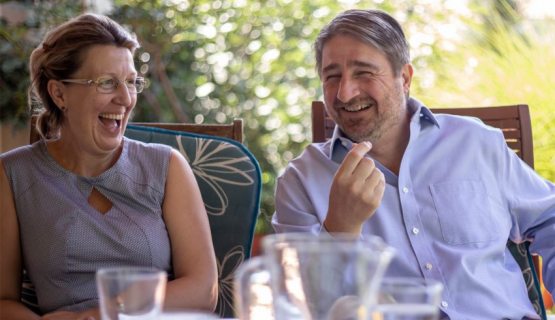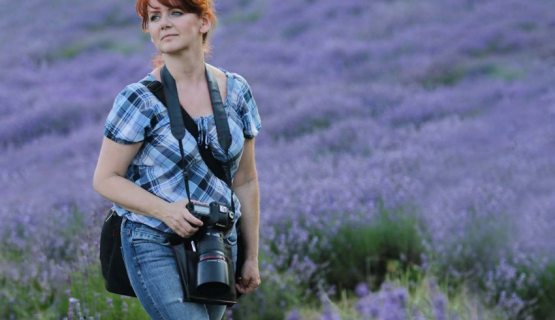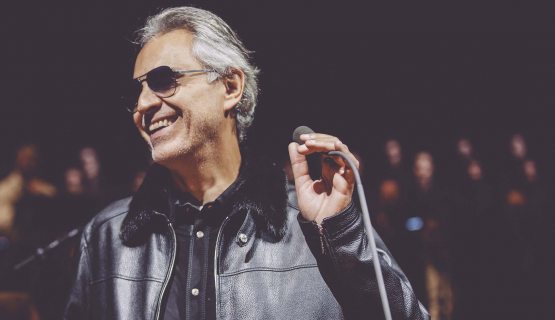Gergely Kiss: “It never once crossed my mind that things could be better with another woman”
They met each other when they were 19, quite by chance, although both played water polo. Ancsa studied at college in Eger and she generally spent her weekends in Kecskemét, but she sometimes stayed over because of exams and at these times she also went to parties. Gergő played water polo with Fradi and his birthday fell right on a three-day training session in Eger. He felt that a party wouldn’t hurt. This is how he ran into Ancsa. Since then they have had a marriage lasting 22 years and seen the family enriched with three children, not to mention three Olympic titles. We spoke with Gergely Kiss and Anna Valkai Kissné.

So, in your case, it was not a one-night stand.
Gergő: “Even if I had had such intentions as a young, independent man, still I stumbled across one of the world’s most moral, most pure-hearted people. We chatted for hours and in the end we parted without arranging the next meeting.”
Ancsa: “I saw that this boy really wanted something from me but I was not the sort of girl that could be picked up at a party for one night. I liked him, but I studied in Eger, my family lived in Kecskemét, this was also where I played water polo, and I felt that a Budapest ‘detour’ just wouldn’t fit into my life. I told Gergő this as well but even so, when it came to say goodbye, I gave him a kiss. However, he didn’t get my phone number. Even so, a week later I sent him the halls of residence number and my father’s, saying that if he was still interested, I would be pleased to get to know him better.
“Since at that time there was just one telephone on each floor of the halls of residence, if Gergő called other people couldn’t reach the residence – which is why I was soon spending a large part of my evenings in a public phone booth. When I was down in Kecskemét, he could contact me on my father’s phone because I didn’t have my own then.”
Gergő: “A landline phone was the only way of keeping in touch and I quickly took over paying my parents’ phone bill: their costs were a few hundred forints, mine were three thousand.”
Ancsa: “After meeting for the first time in September, it was weeks before we could meet again in person. This happened when I was able to go from Kecskemét back to Eger via Budapest. There was one time when I played in Budapest with Kecskemét but Gergő was in the countryside with Fradi. Finally, an accident brought us together: in December, Gergő’s eardrum was damaged and it became infected because he played another three matches with a damaged ear. He became feverish, he couldn’t get out of bed for weeks he was so frail. In January I had my exams and I was able to schedule my time with a degree of freedom so that in effect we moved in together at a time of necessity and unnoticed.”
Gergő: “Right from the start we both thought of our relationship very seriously; I reckon that just a few weeks later we were having really serious discussions like many who have been ‘going out’ for years.”
Just one year after you met, Gergő received a massive opportunity from one of the best water polo teams in the world. Was it difficult to reach a decision when you were 20?
Gergő: “It was a huge decision. I grew up by myself, my mother worked from home and she spent a lot of time with me; my career playing water polo was developing, I was invited to join the world’s best team and in the meantime I wanted to go to university. Ancsa was going to college, she wanted to get a diploma and she received a very good job offer. So things were hectic…”
Ancsa: “When Gergő was invited to Naples he took me with him and introduced me to the Italians as his fiancée. They were very surprised when during talks he asked for a brief break and came out to me in order to talk over the offer.
“They didn’t understand the situation but once I gave my backing – what else could I do – they turned to me with great respect as well. He got the offer in September and we had six months to prepare: I took my half-year exams and then asked for a year’s postponement.”
Ancsa comes from the countryside and has five siblings, Gergő is a single child from the city, and your natures are somewhat different. Was it easy to get along? How did you manage to agree on the number of children, for example?
Ancsa: “In my teens we moved to a farm but before that we had lived in Kecskemét and Szentes so I grew up in a small town environment. The move to Budapest was not easy, I was horrified by the smog.”
Gergő: “It was a big challenge to meet and accept Ancsa’s big family. But I am a team player so it was OK. It was interesting and exciting to get to know close up everybody from tots to students finishing school.”
Ancsa: “My youngest sibling was five months old when we first met. This was strange for me, not to speak of Gergő. We agreed on two children. Gergő would have been happy with one but I don’t think it is a good thing for a single child being alone. We stayed with two for a long time but the children grew up so fast that I started to say to Gergő: I’d like another. Thus our third daughter was born.”
What do you have in common? Gergő once said to me: “Together, Ancsa and I make a great team. It is a pleasure to do everything with her – watch a film, go walking, partying, playing sports and travelling”.
Ancsa: “We have a love of water polo in common, for example. I loved every second of what Gergő has spent a large part of his life doing. Even when he was physically distant. When he took part in Olympics, I didn’t go with him – firstly out of superstition, then because of the children – but in any case, team captain Dénes Kemény didn’t back the idea because he felt family members diverted the attention of players.
“But I closely followed and lived through the excitement of the preparations and matches because Gergő regularly called and told me everything: exactly what had happened to him, how he was, how he felt – all the sorts of things that you don’t share with others.”
Gergő: “Love of the homeland is also something we share, in the sense that we love travelling, we are always longing for the sea and the Mediterranean lifestyle, yet we always come home because we want to live here. We have the same principles as far as bringing up the children is concerned: we try to develop their personalities so that they not only receive but we can expect from them. We believe that wherever they live, they have to maintain certain standards towards their families and their wider communities. And we try to avoid the biggest pitfall, when the child sets the parents against each other, which is why we always ask them: ‘What did Mum (or Dad) say about this?’”
Ancsa: “We share our musical experiences, our interest in culture and history. Similarly, we are both open towards meeting new people. Naturally we enjoy ourselves in the company of water polo players but as it happens, of those we go out with on a regular basis none play water polo.”
Gergő: “I can always count on my fellow water polo players but I have always had another life: school, university, neighbours… I’ve always stayed a dual resident: Budapest and the VII district has the same place in my heart as Szada, where we have lived for more than 18 years.
“Since we have known each other, we have moved countless times, we have lived here in Hungary and abroad, we have experienced everything from being jobless to luxury; we have had successes and failures in teaching and careers, divorce and deaths among friends and our relatives. After all this, resolving an everyday situation appears pretty straightforward.”
Ancsa: “The two of us together are very good at sorting out problems; we have much in common, yet in many things our differences also work out. I explode easily, Gergő resembles a slow volcano. Our kids reckon it is better if Mum goes mad than when they hear roaring from the 2-metre-tall Dad…”
Gergő: “She is practical, I am more theoretical. She is the other half of my personality, the person who puts together the details. She hates putting off things, conflicts or tasks. Sometimes I ask for five seconds to react but generally I don’t get it. I would like to help her but by the time I am thinking of starting she is already doing it.”
Ancsa: “I don’t like waiting… Gergő has been at home for seven years but in the first 15 years he wasn’t here much; I couldn’t really wait for anybody. As a first-born, my father brought me up as a boy, probably that is why I like doing DIY and gardening so much. And of course, doing the housework and dealing with our children. For many years, Gergő disappeared for weeks and when finally he came home I didn’t want him to be the more strict parent. I, however, am consistently strict with them.”
Ancsa, wasn’t it tough being alone for so long? Gergő, wasn’t temptation too strong for you being far from Ancsa?
Ancsa: “When I was 20, I decided I would be the hinterland for my husband. It wasn’t difficult to resign my career playing water polo; I loved it but I was never as enthusiastic about it as he was. I did my things accordingly and I could always agree with the children: if there is training or a match, Daddy’s job always comes first.”
Gergő: “We have often talked through what would happen if Ancsa worked in an office for 8-10 hours a day. She would get home late in the evening, our children would be taken here and there and brought up by a babysitter, and we would give her a good proportion of our income. But this way she can be with them a lot and meanwhile she is always doing something: in Naples, for example, she taught children aquafitness and swimming, she was a guide and she also worked as a language teacher. She helps me a lot in my administrative matters and in our joint company; she provides motivation to many women at @Familymanager7 Instagram page, where she has more than 11,000 followers. As far as the other question goes…”
Ancsa: “A smart woman finds the way so that there is no temptation. We talk over everything, we play our cards face up. Honesty is sometimes painful but it pays off in the long run. And of course, this is the foundation of trust as well.”
Gergő: “What a man can love in a woman my wife has it all. And I greatly love everything in her, but mostly her purity of soul and sincerity. I consider her bad characteristics to be ‘part of the package’. I have seen many beautiful women but it never once crossed my mind that things could be better with another woman.”
